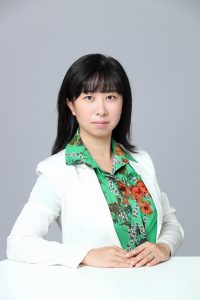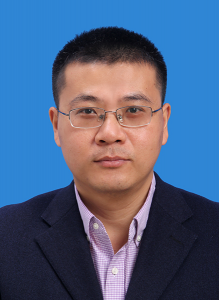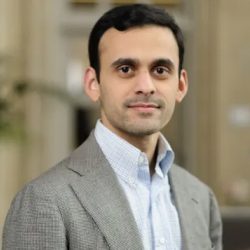Project partners
IC2Permed involves key partners from Europe and China with strong expertise in Personalised Medicine, led by the Università Cattolica del Sacro Cuore
Università Cattolica del Sacro Cuore / Gemelli Foundation


Università Cattolica del Sacro Cuore (UCSC – www.ucsc.it), founded in 1921, includes four campuses (Milano, Brescia, Piacenza-Cremona, Roma), 14 faculties, 52 three-year major tracks, 42 graduate level degrees, 1 four-years degree, over 100 master tracks, 53 specializations and 5 Postgraduate Schools covering the understanding and study of those topics that have proved vital to the well-being of each human being: the new frontiers of economics, bioethics, environmental recuperation, developments in the judicial fields, family dynamics, major mass phenomena, the evolution of political systems, new horizons in medicine, the technological applications of physics and mathematics, and the most recent discoveries in environmental research.
Fondazione Telethon

Fondazione Telethon (www.telethon.it) is an Italian non-profit organisation created in 1990 as a response to the appeals of a group of stakeholders, who saw scientific research as the only real opportunity to fight genetic diseases and win. Thanks to the funds raised through the television marathons, along with other initiatives and a network of partners and volunteers, Telethon finances the best scientific research on rare genetic diseases, with the ultimate objective of making the treatments developed available to everyone who needs them. Telethon research programs cover pre-clinical and clinical research projects as well as patient registries and network of biobanks.
Steinbeis 2i GmbH

The Steinbeis 2i GmbH (S2i) is committed to helping companies and universities to innovate and internationalise (hence 2i) and was founded in 2016 as a 100% spin-off of the “Steinbeis-Europa-Zentrum”. It has offices located in Stuttgart and Karlsruhe. Steinbeis 2i supports the work of the Commissioner for Europe of Baden-Württemberg’s Minister of Economic Affairs, Labour and Housing and focuses on providing professional services for the EU’s Horizon 2020 Research and Innovation Programme.
BBMRI-ERIC

The pan-European Biobanking and BioMolecular resources Research Infrastructure – European Research Infrastructure Consortium (BBMRI-ERIC) improves the accessibility and interoperability of the existing comprehensive collections, either population-based or clinical-oriented, of biological samples from different (sub)populations of Europe.
World Federation of Public Health Association
The WFPHA is an international, nonprofit, nongovernmental organization composed of over 115 associations member, mostly multidisciplinary national public health associations, and representing around 5 million public health professionals worldwide. It is the only worldwide professional society representing and serving the broad field of public health.
G.A.C.

G.A.C. Group (G.A.C.), Global Approach Consulting, is an international innovation consultancy firm specialised in innovation performance support. It was established in 2002 and has 200+ specialists, mostly with PhD or MSc, spread across Europe, South America, Canada and Southeast Asia. The headquarters of the company are based in Issy-les-Moulineaux, France; with offices in several cities of France, as well as in Romania, Singapore, Canada, Brazil & Germany.
BGI Research

Founded in 1999, BGI is one of the world’s leading life science and genomics organizations. BGI’s mission is to use genomics to benefit mankind and to be a leader in the era of life sciences. BGI follows a genomics development model of “research, production and application”. With businesses in more than 100 countries and regions around the world, BGI has established cooperation and partnerships with thousands of different organizations across multi-disciplinary research areas including medical health, resource conservation and judicial services.
National Cancer Centre
Cancer Hospital Chinese Academy of Medical Science (CHCAMS) is the first cancer hospital in China, of 62 years old. CHCAMS also serves as National Cancer Center of China, National Clinical Research Center for Cancer, National Quality Control Center for Cancer Standardized Diagnosis and Treatment, National Clinical Trial Center for Anticancer Drugs. CHCAMS is also the home of National Cancer Prevention and Control Office and National Cancer Registration Center. China Cancer Research Foundation (CCRF), Chinese Society of Clinical Oncology (CscO), Beijing Cancer Society and other professional cancer societies were also established at CHCAMS.
Tsinghua University

Tsinghua University (TSU) was established in 1911. Over a hundred years’ development, TSU now has 20 schools, 58 departments, thousands of faculties and over 10 thousand of students. The School of Pharmaceutical Sciences (SPS) at Tsinghua University was established in 2015. It has developed into a leading institution and continues to grow rapidly. Now at SPS, there are 27 principal investigators, 119 teaching/technical/admin, 84 undergraduate students, 176 graduate students, and 35 postdoctoral fellows.
Advisory board
To achieve its objectives, IC2PerMed project consortium mobilises a community of Personalised Medicine experts from China and the EU. The Advisory Board members provide the consortium with expertise, external vision, opinion and feedback on IC2PerMed activities

Wen Mao, Project Lead, Precision Medicine, World Economic Forum
Wen joined the Precision Medicine team based in the Forum’s Beijing office, bringing to the position 10 years of global healthcare and digital commerce experience. She holds a PhD in neuroscience and an MS in regulatory science, both from University of Southern California and a bachelor’s degree in biological sciences from Peking University. Wen worked for bbott Healthcare for six years, based in San Francisco Bay area and in Shanghai, developing and implementing global regulatory and clinical strategies for medical devices in US and China, and supporting diabetes care product launches in 8 European countries, Canada, Australia, Japan, Chile, India, Brazil, US and China. After leaving Abbott, Wen lived in Hangzhou for two years where she was the Chief Operation Officer of an digital commerce start-up company, successfully raising over 150 million RMB in three series, growing the company from 5 employees to nearly 300 in 3 years, and spearheading the company’s transition to an artificial intelligent (AI) enabled retail model.

Jie Huang Ph.D, Research Fellow,Institute for In Vitro Diagnostics Control , National Institute for food and drug Control (NIFDC), China
Mr. Jie Huang is mainly engaged in the quality control and evaluation of in vitro diagnostic reagents. His main research interests is the national reference materials development for in vitro diagnostic reagent evaluation, precision medicine research such as next-generation sequencing and other cutting-edge technology research and evaluation.
Aside his research, he is responsible for the national reference materials development of NIPT detection, Preimplantation Genetics Screening(PGS), oncogene mutation detection, ctDNA detection. Systematic evaluation of the performance of the sequencer, high-throughput sequencing technology in non-invasive prenatal, embryo implantation, tumor mutation detection and other fields. He is also responsible for the drafting and formulation of multiple industry standards.

Anant Jani, Oxford Martin Fellow, University of Oxford, UK
Anant is an Oxford Martin Fellow at the University of Oxford. His work focuses on how to improve population health by tackling social determinants of health using technology and innovative organisational and commissioning models. He previously was the Executive Director of Better Value Healthcare (BVHC), a boutique advisory firm working with healthcare systems to focus on value-based healthcare. Through his role at BVHC, he was a member of the PRECeDI project. He earned his PhD from Yale University and BS from Brandeis University.
